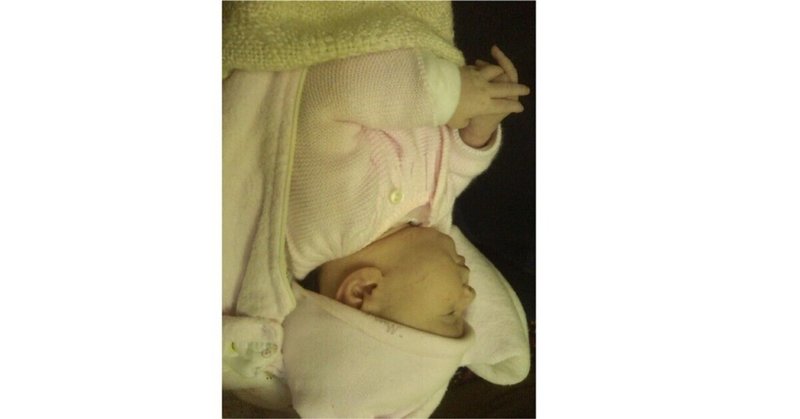
ウクライナの恥部: 人身売買の蔓延/ニューズウィーク2016年1月16日の記事より
Ukraine's Shame: An Epidemic of Human Trafficking
ウクライナの恥部: 人身売買の蔓延
Ukraine remains one of Europe's most notorious sources of human trafficking.
ウクライナは、ヨーロッパで最も悪名高い人身売買の発生源の1つとなっている。
Since 1991, more than 160,000 men, women and children have been exploited for labor, sex, forced begging and organ removal, according to a mid-2015 report from the International Organization for Migration (IOM).
国際移住機関(IOM)の2015年半ばの報告によると、1991年以降、16万人以上の男性、女性、子どもが労働、セックス、強制物乞い、臓器摘出のために搾取されています。
Ukraine's Ministry of Social Policy, with recommendations from domestic and international nongovernmental organizations (NGOs), is currently in the final stages of updating the country's five-year action plan on combating human trafficking.
ウクライナ社会政策省は、国内外の非政府組織(NGO)の提言を受け、現在、人身売買対策に関する同国の5年間の行動計画を更新する最終段階に入っている。
However, recent challenges—like Russia's continued aggression in eastern Ukraine and the country's 1.5 million internally displaced persons (IDPs)—have diverted the government's attention and resources from meaningful anti-trafficking collaboration.
しかし、最近の課題として、ロシアのウクライナ東部での継続的な侵略や150万人の国内避難民(IDPs)などがあり、政府の関心と資源は有意義な人身売買防止協力から遠ざかっている。
The result has been an extreme overreliance on NGOs to raise awareness, assist victims of trafficking and promote legislative reform to comply with international standards.
その結果、意識の向上、人身売買の被害者の支援、国際基準に準拠するための法改正を推進するために、NGOに極端に依存することになった。
"Since the security situation started in the east of Ukraine, other things were blocked. All money went to subsidies, to the military, to IDPs," says Olga Streltsova, the IOM's adviser to the Ministry of Social Policy, the main body in charge of Ukraine's anti-trafficking program.
「ウクライナ東部で治安が悪くなってから、他のことができなくなった。すべてのお金は補助金や軍、国内避難民のために使われました」と、ウクライナの人身売買防止プログラムを担当する主体である社会政策省のIOMアドバイザー、オルガ・ストレルツォワは言う。
The predicted budget for this next action plan has been slashed by 30 percent relative to the previous plan, which covered 2013–15. Outside contributors, such as human rights organizations and foreign governments, will continue to supply the vast majority of funds to the program.
この次期アクションプランの予測予算は、2013年から15年を対象とした前回のプランと比較して30%削減されました。人権団体や外国政府などの外部からの拠出金が、引き続き本プログラムの資金の大半を占めることになる。
These donors will contribute the equivalent of $1.47 million through 2020, or more than 92 percent of the entire bill. The other 8 percent will be divided almost equally between local governments and the central government. Funding from the latter will not kick in until 2017.
これらのドナーは、2020年までに147万ドル相当、つまり法案全体の92%以上を拠出することになる。残りの8%は、地方政府と中央政府がほぼ均等に分担する。後者からの資金提供は2017年までとなる。
The money issue "is a big problem for our government," says Tetyana Taturevych, social programs manager for the NGO La Strada–Ukraine. "When we start talking about trafficking, they start to think, 'Oh, that's not a big problem for our society. We don't have money, we have a war.'"
資金問題は「政府にとって大きな問題です」と、NGO「La Strada-Ukraine」の社会プログラムマネージャーであるTetyana Taturevych氏は言う。人身売買の話を始めると、彼らは『ああ、それは私たちの社会にとって大きな問題ではない』と考えるようになります。お金もないし、戦争もあるし......」と。
While the government of Ukraine has consistently pledged reform to meet international obligations—for example, as a signatory of the United Nations's Protocol to Prevent, Suppress and Punish Trafficking in Persons, Especially Women and Children—it has failed to adequately support anti-trafficking organizations that do the bulk of the work.
ウクライナ政府は、国連の「人身売買、特に女性と子どもの人身売買を防止、抑制、処罰するための議定書」の締結など、国際的な義務を果たすための改革を一貫して表明してきたが、活動の大部分を担う人身売買防止団体への十分な支援はできていない。
"Our government so far has not given civil society a defined role in the national referral mechanism," says Hanna Antonova, a counter-trafficking coordinator at the IOM. The referral mechanism is the process by which law enforcement refers alleged victims of trafficking to anti-trafficking organizations to receive psychological, legal and social support.
IOMの人身売買対策コーディネーターであるハンナ・アントノヴァは、「私たちの政府はこれまで、国の紹介メカニズムにおいて市民社会に明確な役割を与えてきませんでした」と言う。紹介制度とは、人身売買の被害者とされる人々を法執行機関が心理的、法的、社会的支援を受けるために人身売買防止団体に紹介するプロセスである。
For the past four years, the number of trafficking victims referred to the IOM for assistance by Ukrainian law enforcement agencies has decreased by roughly half annually.
過去4年間、ウクライナの法執行機関が支援のためにIOMに紹介した人身売買被害者の数は、毎年およそ半分に減少している。
In 2012, 2013, 2014 and 2015, there were 232, 105, 52 and 27 victims referred, respectively. These numbers are dramatically different from those of the IOM; the average number of victims identified annually by the IOM has remained close to 1,000.
2012年、2013年、2014年、2015年に紹介された被害者は、それぞれ232人、105人、52人、27人である。この数字はIOMの数字とは大きく異なり、IOMが認定する年間平均被害者数は1,000人近くで推移している。
Moreover, President Petro Poroshenko's effort to push through legislation that would decentralize authority and empower Ukraine's regions threatens to reverse progress in efforts to combat trafficking.
さらに、ペトロ・ポロシェンコ大統領は、ウクライナの地方に権限を分散させ、権限を与える法案を押し通そうとしており、人身売買撲滅のための努力の進展を覆す恐れがある。
If passed, NGOs may have to collaborate with officials from more than 20 different oblasts. Each regional administration would decide how to prioritize anti-trafficking prevention efforts and assistance to victims, if at all, throwing nationwide coordination efforts into disarray.
もし可決されれば、NGOは20以上の異なる州の職員と協力しなければならないかもしれない。各地域の行政は、人身売買防止活動や被害者支援に優先順位をつけるかどうかを決めることになり、全国的な調整努力は混乱することになる。
"We don't know what decentralization will look like," says Antonova. "If the local administration does not believe that trafficking is a problem for this specific region, then they are not going to allocate any funding, or they will allocate so little funding that it is not going to make any difference."
「地方分権がどのようなものになるかはわからない」とアントノヴァは言う。「地方行政が人身売買をこの地域の問題だと考えていないのであれば、資金を配分しないか、あるいは配分しても意味がないほど少ない資金しか配分しないだろう」と。
International bodies such as the U.S. Department of State and the Council of Europe's Group of Experts on Action Against Trafficking in Human Beings (GRETA) have also criticized Ukraine's government for not devoting enough attention to the issue.
米国国務省や欧州評議会の人身取引対策専門家グループ(GRETA)などの国際機関も、ウクライナ政府がこの問題に十分な関心を払っていないと批判している。
For instance, for the third straight year, Ukraine has been placed on the State Department's Tier 2 Watch List, avoiding an otherwise mandatory downgrade to Tier 3 (the worst ranking) simply because it has a written anti-trafficking action plan.
例えば、ウクライナは3年連続で国務省の「Tier2監視リスト」に掲載され、人身売買防止行動計画書があるだけでTier3(最悪のランク)への格下げを回避しています。
The State Department notes with concern the decreasing number of prosecutions of traffickers, as well as "poor coordination at the national level" between the 15 ministries responsible for anti-trafficking work.
国務省は、人身売買業者の訴追件数が減少していることに加え、人身売買対策業務を担当する15の省庁の間で「国レベルでの連携が不十分」であることに懸念を示している。
GRETA's first-ever report on Ukraine's anti-trafficking program, published in September 2014, also acknowledged poor coordination among government ministries. The executive interdepartmental council on human trafficking—headed by ministers, deputy ministers and representatives from civil society—has not convened for five years.
GRETAが2014年9月に発表したウクライナの人身売買対策に関する初の報告書でも、政府省庁間の連携が不十分であることが指摘されている。大臣、副大臣、市民社会からの代表で構成される人身売買に関する省庁間協議会は、5年間招集されていない。
Despite the government's shortcomings, some positive steps have been taken. The Ministry of Social Policy plans to re-adjourn the interdepartmental council in early 2016, and has sent letters to NGOs in the anti-trafficking coalition requesting that they nominate representatives to the council. And throughout the past few years, the ministry has implemented campaigns to raise awareness about human trafficking through television and radio broadcasting, and the publishing and distribution of books and pamphlets.
政府の欠点にもかかわらず、いくつかの前向きな措置がとられている。社会政策省は、2016年初頭に省庁間協議会の再出席を予定しており、反人身売買連合に参加しているNGOに対して、協議会への代表者の推薦を求める書簡を送付している。また、過去数年にわたり、同省はテレビやラジオ放送、書籍やパンフレットの出版・配布を通じて、人身売買に関する意識を高めるキャンペーンを実施してきた。
Yet more needs to be done, especially since the war in the east has created a large population of individuals prone to exploitation.
特に、東部での戦争は、搾取されやすい人々を多く生み出しているため、より多くのことを行う必要がある。
"We have a proverb," warns La Strada–Ukraine's Taturevych. Translated from Russian, it states: "Sink or swim; if you are drowning, you are on your own." Currently, only NGOs—and not the Ukrainian government—are struggling to keep those vulnerable to trafficking afloat.
「我々はある諺を持っている」とラ・ストラーダ-ウクライナのタチュレヴィチが警告している。ロシア語から訳すと、次のようになる: 「沈むか泳ぐか、溺れるなら自己責任で」。現在、ウクライナ政府ではなくNGOだけが、人身売買の被害に遭いやすい人たちを浮かせようと奮闘している。
Officials from Ukraine's Ministry of Social Policy did not respond to interview requests.
ウクライナの社会政策省の職員は、取材依頼に応じなかった。
英語学習と世界のニュースを!
自分が関心があることを多くの人にもシェアすることで、より広く世の中を動きを知っていただきたいと思い、執筆しております。もし、よろしければ、サポートお願いします!サポートしていただいたものは、より記事の質を上げるために使わせていただきますm(__)m
